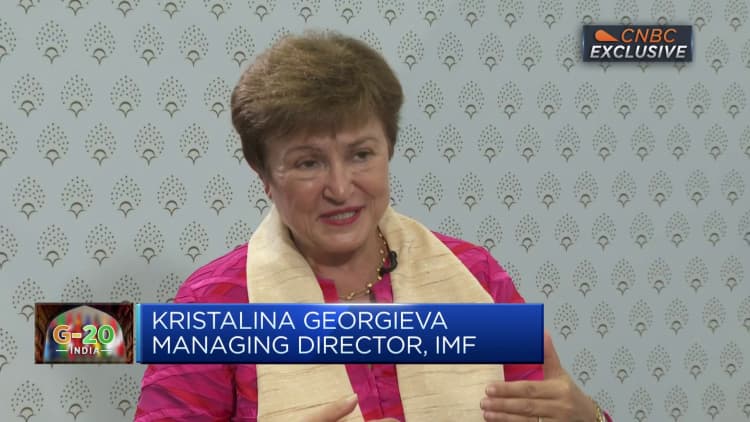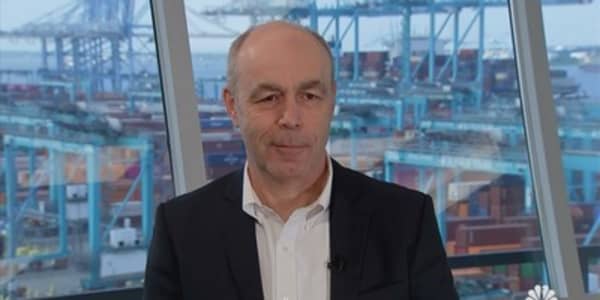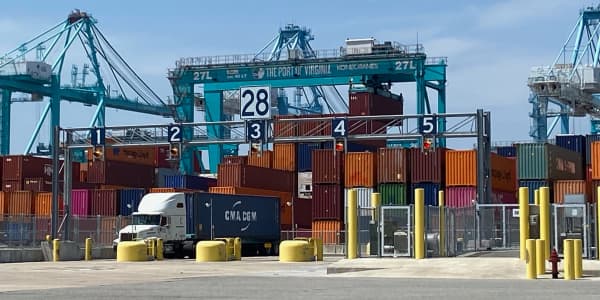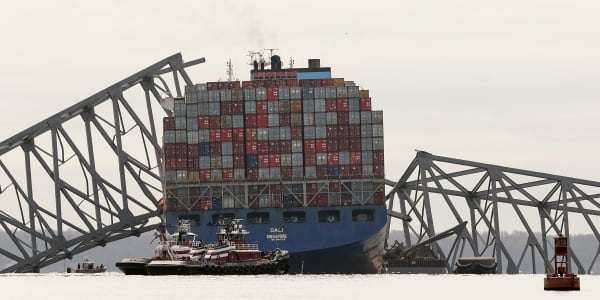Prepare for "stalling and divergent" global growth next year, according to a new forecast issued by the United Nations.
Global economic growth will rise slightly, from 2.4% in 2023 to 2.5% in 2024, according to the UN's Trade and Development Report, but the world economy is in a precarious position, Richard Kozul-Wright, UNCTAD, Director, Division on Globalization and Development Strategies Division, tells CNBC.
"The global economy is pretty weak and I consider the projection to be an optimistic call," he said.
The UN forecasting team isn't ready to call a recession in the U.S., but does see significant economic headwinds that will result in a slowdown in the U.S. economy next year, Kozul-Wright said.
"Despite all thoughts of a soft landing and Goldilocks recovery, there are many things to worry about," he added, citing the UAW strike, tightening credit, student loan payments restarting, and the continuing government shutdown threat.
Even with these concerns, he noted that the U.S. economy continues to be the best-performing amongst the developing countries. "I know there are growing voices of the 'R word' for the U.S. next year, but we are not saying recession yet. We are cautious," he said.
Europe on edge of recession
Wright tells CNBC the economic situation in Europe is not garnering enough attention and the UN forecast for the global economy hinges on the eurozone.
"We need to see a growth rebound in Europe," Kozul-Wright. "European investment is flat. The eurozone has not contributed to the global economy this year. It is on the edge of a recession."
In his view, the focus on China's economic health at the expense of attention being paid to the economic health of the eurozone is a mistake. "China will grow 12 times faster than the eurozone this year. While I do not think they will hit five percent growth this year, they are growing."
The UN report says that stagnant or falling real wages across the European continent, compounded by fiscal austerity, are reasons for growth being dragged down.
Nearly one-third of frontier economies facing debt distress
The UN team says despite recent wage gains across the globe, wages have not kept up with inflation and economic inequality remains a significant challenge.
Developing countries are disproportionately being affected, including the effects of monetary tightening in the advanced economies. The widening wealth gap further threatens to undermine developing countries' economic recovery and the aspirations to meet the sustainable development goals (SDGs), Kozul-Wright said.
Over the past decade, according to the UN report, both external public and publicly guaranteed (PPG) debt have tripled in low or lower-middle-income "frontier economies." Compounding this sovereign debt issue: rising interest rates, weakening currencies, and sluggish export growth. Nearly a third of frontier economies are on the precipice of debt distress.
UN calls for 'Dodd-Frank'-like food trade regulation
With the recent inflation in food prices around the globe, and shocks in key commodity markets, such as grain prices after Russia's suspension of the Black Sea Grain Initiative which the United Nations brokered, Wright tells CNBC that UNCTAD is calling for a more transparent, regulated food trade system.
The report takes aim at some of the largest food industry suppliers in the world, claiming a pattern of "profiteering" that reinforces the need for more oversight and regulation of food companies under global financial regulatory authority.
"Cargill, Bungee, Archer Daniels Midland, and Louis Dreyfus Companies are acting more like hedge funds and they should be treated as hedge funds," Kozul-Wright said. "We need to look at the behavior of some of the large commodity traders. They make spectacular money in the volatility. ... have almost become financial institutions as much as they are commodity traders. ... Dodd-Frank has not been fully implemented," he said.
The companies cited by the UN official could not be immediately reached for comment.






